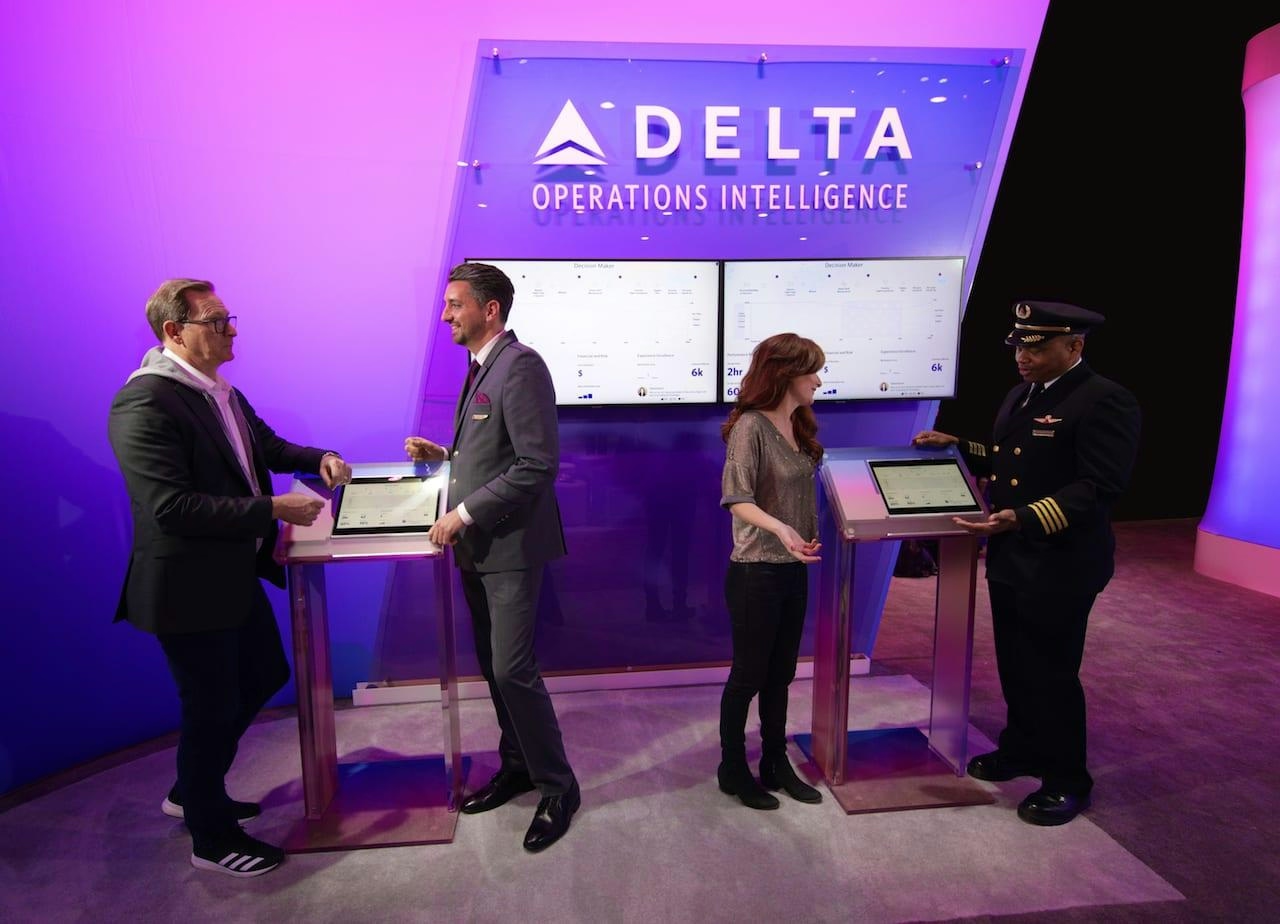AeroGenie — Your Intelligent Copilot.
Trending
Categories
Airlines Use AI to Manage Flight Disruptions

Airlines Harness Artificial Intelligence to Mitigate Flight Disruptions
The recent U.S. government shutdown has intensified flight delays, drawing renewed attention to the role of artificial intelligence (AI) in managing airline disruptions. With the Federal Aviation Administration (FAA) scaling back air-traffic operations, airlines are grappling with reduced flight capacity and extended delays at major airports. This situation, compounded by rising passenger demand and labor shortages, has underscored the pressing need for technological solutions that can proactively address operational challenges.
AI Enhancing Passenger Experience and Operational Efficiency
For travelers, AI’s most tangible impact is evident in how airlines manage delays and rebookings. Delta Air Lines has introduced Delta Concierge, an AI-powered assistant integrated into its Fly Delta app. This tool employs predictive modeling to evaluate potential disruptions caused by weather or congestion, offering passengers timely rebooking options or ground transportation alternatives before issues escalate.
Similarly, American Airlines has implemented an AI-driven rebooking system capable of processing thousands of disrupted itineraries simultaneously. When flights are delayed or canceled, the system automatically identifies passengers at risk of missing connections and provides real-time alternative routes. The airline is also piloting an algorithm designed to determine whether outbound flights can briefly hold for late-arriving travelers, striking a balance between operational efficiency and customer service.
Behind the scenes, airlines are leveraging AI to optimize operations. Korean Air has migrated its crew scheduling, maintenance, and turnaround systems to Google Cloud, enabling the identification of inefficiencies and improving aircraft readiness. Executives report notable reductions in maintenance delays and enhanced fleet utilization as a result of this digital transformation.
Qatar Airways has launched AI Skyways in partnership with Accenture, embedding AI across scheduling, maintenance, and customer service functions. By analyzing real-time data, the system predicts potential disruptions hours in advance, allowing staff to adjust aircraft routing and crew assignments proactively. The airline emphasizes that AI is intended to support human operators rather than replace them.
Virgin Atlantic has expanded its collaboration with Tata Consultancy Services to develop an AI-led Technology Command Centre. This digital hub monitors all operational aspects, enabling managers to respond swiftly to irregular events such as weather delays or crew shortages, thereby reducing the time required to reassign aircraft and personnel.
Industry Adoption and Challenges
Beyond these initiatives, other carriers are exploring AI-driven innovations. Delta is testing an AI-based pricing system developed with Fetcherr, which could revolutionize ticket sales and pricing strategies. During the company’s second-quarter earnings call, CEO Ed Bastian described the test phase results as encouraging.
Despite these advances, airlines face significant hurdles in adopting AI for disruption management, including regulatory compliance, safety concerns, and maintaining customer service standards. Southwest Airlines exemplifies a cautious approach, prioritizing responsible AI adoption to preserve its customer service culture, particularly regarding conversational bots and other advanced tools.
Meanwhile, online travel agencies (OTAs) currently hold an advantage over airlines in utilizing AI technologies such as ChatGPT for flight searches. The recent government shutdown resolution saw the stocks of major carriers like American, United, and Delta rise, reflecting market sensitivity to staffing and operational disruptions. Additionally, Alaska Airlines’ recovery from an IT outage highlighted the broader impact of technology failures on airline operations.
As the aviation industry continues to navigate a complex operational landscape, AI is emerging as a vital tool. However, its integration remains tempered by the sector’s unique challenges and the imperative to uphold safety and service excellence.

Emirates Unveils Cabin Design for New Boeing 777X

Eighteen Years On, the Airbus A380 Remains Central to a $34 Billion Airline

How a boom in luxury airline seats is slowing down jet deliveries

Navitaire Outage Attributed to Planned Maintenance

DigiYatra Debuts Outside Aviation at India AI Impact Summit

Vietnam Orders Strengthen Boeing’s Commercial Outlook

Airbus Signals Uncertainty Over Future A400M Orders

JobsOhio Awards $2 Million Grant to Hartzell Propeller for Innovation Center

Collins Aerospace Tests Sidekick Autonomy Software on YFQ-42A for U.S. Air Force CCA Program

How the Airbus A350-1000 Compares to the Boeing 777
